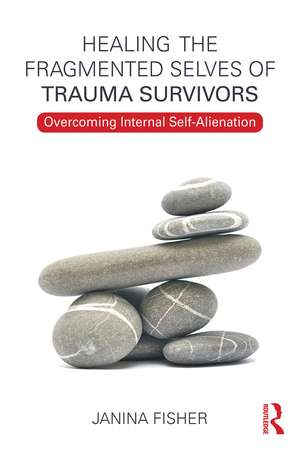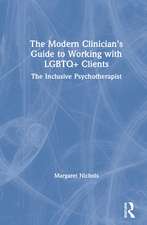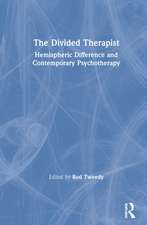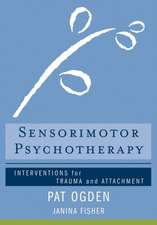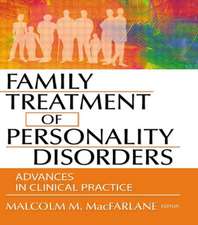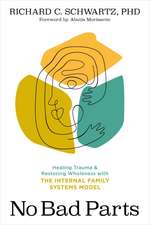Healing the Fragmented Selves of Trauma Survivors: Overcoming Internal Self-Alienation
Autor Janina Fisheren Limba Engleză Paperback – 3 mar 2017
Healing the Fragmented Selves of Trauma Survivors integrates a neurobiologically informed understanding of trauma, dissociation, and attachment with a practical approach to treatment, all communicated in straightforward language accessible to both client and therapist. Readers will be exposed to a model that emphasizes "resolution"-a transformation in the relationship to one's self, replacing shame, self-loathing, and assumptions of guilt with compassionate acceptance. Its unique interventions have been adapted from a number of cutting-edge therapeutic approaches, including Sensorimotor Psychotherapy, Internal Family Systems, mindfulness-based therapies, and clinical hypnosis. Readers will close the pages of Healing the Fragmented Selves of Trauma Survivors with a solid grasp of therapeutic approaches to traumatic attachment, working with undiagnosed dissociative symptoms and disorders, integrating "right brain-to-right brain" treatment methods, and much more. Most of all, they will come away with tools for helping clients create an internal sense of safety and compassionate connection to even their most dis-owned selves.
| Toate formatele și edițiile | Preț | Express |
|---|---|---|
| Paperback (1) | 245.07 lei 3-5 săpt. | +19.08 lei 4-10 zile |
| Taylor & Francis – 3 mar 2017 | 245.07 lei 3-5 săpt. | +19.08 lei 4-10 zile |
| Hardback (1) | 1037.62 lei 6-8 săpt. | |
| Taylor & Francis – 6 mar 2017 | 1037.62 lei 6-8 săpt. |
Preț: 245.07 lei
Preț vechi: 257.96 lei
-5% Nou
46.91€ • 50.97$ • 39.43£
Carte disponibilă
Livrare economică 31 martie-14 aprilie
Livrare express 14-20 martie pentru 29.07 lei
Specificații
ISBN-10: 0415708230
Pagini: 292
Ilustrații: 4
Dimensiuni: 152 x 229 x 20 mm
Greutate: 0.39 kg
Ediția:1
Editura: Taylor & Francis
Colecția Routledge
Locul publicării:Oxford, United Kingdom
Public țintă
Professional and Professional Practice & DevelopmentCuprins
List of Figures
Acknowledgements
Introduction
Chapter One: Alienation from Self: How We Survive Overwhelming Experiences
Chapter Two: Understanding Parts, Understanding Traumatic Responses
Chapter Three: Parts Instead of Wholes: New Roles for Client and Therapist
Chapter Four: Seeing Our ‘Selves:’ an Introduction to Parts Work
Chapter Five: Befriending Our Parts: Sowing Seeds of Compassion
Chapter Six: Complications of Treatment: Traumatic Attachment
Chapter Seven: Treatment Challenges: Suicidality, Self-Harm, Addictions, and Eating Disorders
Chapter Eight: Complications of Treatment: Dissociative Disorders
Chapter Nine: Repairing the Past: Embracing Our Selves
Chapter Ten: Restoring What was Lost to Wounded Children
Appendix A: Five Steps to "Unblending"
Appendix B: Meditation Circle for Parts
Appendix C: Internal Dialogue Technique
Appendix D: Treatment Paradigm for Internal Attachment Repair
Appendix E: Dissociative Experiences Log
Appendix F: The Four Befriending Questions
Notă biografică
Recenzii
Sue Johnson, PhD, professor, researcher, and author of Love Sense: The Revolutionary New Science of Romantic Relationships
"Written by one of the preeminent experts in the field of trauma and dissociation, Healing the Fragmented Selves of Trauma Survivors imparts a vision of hope and validation to those suffering from complex trauma and the therapists who treat them. Janina Fisher’s exceptional ability to synthesize the best of cutting edge trauma psychotherapies has resulted in a brilliant and unique roadmap for resolving chronic traumatization. Written with heart, clarity, and precision, this accessible and practical book is an outstanding contribution to the field."
Pat Ogden, PhD, founder, Sensorimotor Psychotherapy Institute
"The role of cumulative trauma in the fragmentation of self-experience, the strategies for identifying, together with the client, the non-integrated parts of the personality during the clinical exchanges, and the integrating power of the psychotherapy dialogue have rarely been dealt with in such a convincing and original way as in the pages of this fascinating book."
Giovanni Liotti, MD, APC School of Psychotherapy, Rome, Italy
"Janina Fisher’s unique blending of IFS ‘parts’ with sensorimotor and mindfulness-based therapy is a terrific enhancement to psychodynamic work. Although grounded in structural dissociation theory and trauma treatment, Healing the Fragmented Selves of Trauma Survivors offers insights that will enrich the knowledge-base of therapists treating higher-functioning as well as deeply traumatized individuals. I recommend this remarkable book to all psychotherapists, especially psychodynamic ones, who will discover an extraordinary opportunity to expand their clinical horizons."
Kenneth A. Frank, PhD, Psychotherapy Integration Training Program, National Institute for Psychotherapies
Readers will close the pages of Healing the Fragmented Selves of Trauma Survivors with a solid grasp of therapeutic approaches to traumatic attachment, working with undiagnosed dissociative symptoms and disorders, integrating "right brain-to-right brain" treatment methods, and much more. Most of all, they will come away with tools for helping clients create an internal sense of safety and compassionate connection to even their most dis-owned selves.
The Phoenix Spirit
Descriere
Healing the Fragmented Selves of Trauma Survivors integrates a neurobiologically informed understanding of trauma, dissociation, and attachment with a practical approach to treatment, all communicated in straightforward language accessible to both client and therapist. Readers will be exposed to a model that emphasizes "resolution"-a transformation in the relationship to one's self, replacing shame, self-loathing, and assumptions of guilt with compassionate acceptance. Its unique interventions have been adapted from a number of cutting-edge therapeutic approaches, including Sensorimotor Psychotherapy, Internal Family Systems, mindfulness-based therapies, and clinical hypnosis. Readers will close the pages of Healing the Fragmented Selves of Trauma Survivors with a solid grasp of therapeutic approaches to traumatic attachment, working with undiagnosed dissociative symptoms and disorders, integrating "right brain-to-right brain" treatment methods, and much more. Most of all, they will come away with tools for helping clients create an internal sense of safety and compassionate connection to even their most dis-owned selves.
